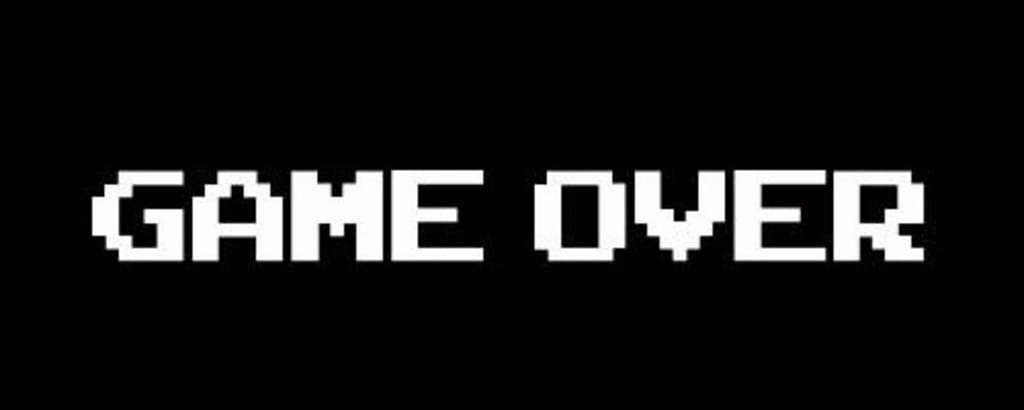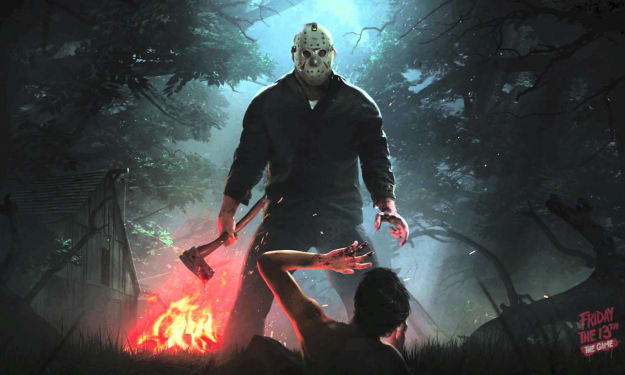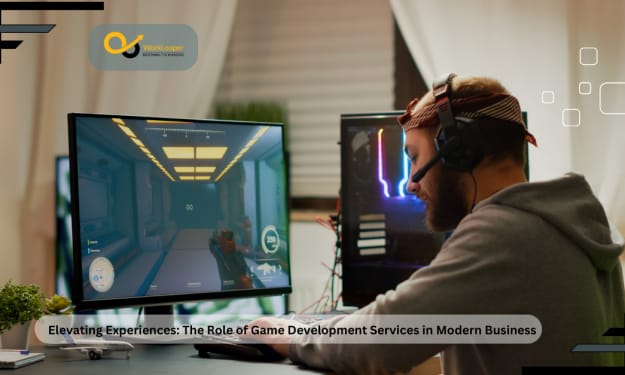Game Over...
The Lost Consequence of Gaming

As someone who started playing video games in the early 90s, back when the two big contenders in the console wars were Nintendo and Sega, I was there to see all the major moments in gaming history that were just around the corner. The launch of the infamous Virtual Boy, the fall of cartridge games and the rise of CD games, and the evolution from 8 bit to 16 bit to "whatever the hell it is now" bit graphics. I was there when the Console Wars kicked into overdrive with the release of the PlayStation, the Sega Saturn and the Nintendo 64, consoles which would go on to be remembered as the point in which gaming became more than just a silly time-waster. It became a dedicated hobby (And for many people in modern times, an actual honest-to-God job). I've seen all sorts of advancements in the industry, both technical and social. But I have noticed something that, while still present in gaming, has become a vastly faint whisper of what it once was: Game Overs.
You see kids, there was a time when the term "Game Over" really fucking meant game over. As in, you lost, the game was done, and if you wanted to play again, you had to start all over from the beginning. The gamers that are coming up now, the ones who were born into a world were saving your progress and picking it up later isn't the exception but the norm, have no earthly idea the original weight behind those two dreaded words. How many kids back in the late 80s spent whole days in front of the TV playing through Super Mario Bros or Contra? How many of those kids felt the bitter taste of getting to the last boss, only to die and be sent all the way back to square one? How many controllers were smashed, thrown, or outright run over in fury as the result of an entire day wasted because of one bad moment of timing?
Now, I'm not lambasting modern games for the ability to save your progress and keep playing. God knows that when I first played Legend of Zelda and found I could save my progress and return at any time to pick up where I left off, I was ecstatic (Granted, it still took me over 20 years to beat that game, but that's another story). The ability to save your progress and play at any time was and still is a godsend in gaming. Of course, the ability was still somewhat in its infancy when I started, but it was already quickly becoming the norm.
But then what of the Game Over? As time passed and we could save our progress via save states and passwords, the very concept of Game Over shifted. Instead of being used to indicate either mere completion of a game or failure thereof, it became a sort of minor annoyance. "Oh, I didn't beat this boss and got a Game Over. Well, I guess I better load up that last save and try it again!" With that mentality, it's not really a game OVER, is it? No, and in many cases, it shouldn't be. Could you imagine spending literally hundreds of hours playing Final Fantasy 7 only to die at the final boss and be forced to start ALL OVER? No, but then games like Final Fantasy aren't really games as they are interactive stories. And the few games that do still have Game Overs only use them to indicate that you failed and should load up that last save. Or more rarely that you actually completed the game, congratulations. Because of this, the concept of Game Over has lost nearly all of its original sting. But here's the real question: Is that a bad thing?
While Game Overs are pretty much archaic holdovers from the early days of gaming, they're still necessary, albeit in a different term. Rarely is a game over truly a Game Over. Now, it's more commonly a way of indicating failure, again as a minor annoyance. Many games, like the Resident Evil series, got creative with the concept. Instead of simply saying "Game Over" you were greeted with the cheery message of "YOU ARE DEAD" written in blood, usually with a shot of your corpse for emphasis. Sure, it's not a Game Over, but you still friggin' died chump, so load up that save and do it right this time! Other games have other ways of penalizing you for failure without saying "Game Over." For instance, DC Universe Online, a MMORPG based on DC Comics and its characters, have it so that when your character is knocked out (since no one really dies in comics) you respawn elsewhere, but your equipment is damaged, requiring you to spend in-game money to get it fixed.
Look, video games have come a long way from the days of the Atari 2600 and Pong. The simple fact is, most games aren't over until you've actually completed them, failure be damned. The concept of Game Over has changed and that's not a bad thing. Sure, I'll remember it wistfully, much like I remember floppy disks and dedicated landlines, but I'm not about to sit here and say that I miss the frustration that came with those two words. And I don't worry about the younger gamers out there not suffering from Game Overs. There's a lot worse from gaming's yesteryear than a simple Game Over screen.
E.T. for instance. Ugh...





Comments
There are no comments for this story
Be the first to respond and start the conversation.